 August 10, 2017 John E. Ross, KD8IDJ, Editor
| ||||||
ARRL Posts Amateur Radio Parity Act FAQ The Amateur Radio Parity Act of 2017 is now in the US Senate (S. 1534). ARRL has developed and posted a list of frequently asked questions (FAQs), "The Amateur Radio Parity Act: Setting the Record Straight," to explain and to clarify what the passage of the legislation would accomplish -- as well as what it would not.
ARRL General Counsel Chris Imlay, W3KD, prepared the FAQ on behalf of the Board of Directors and its ad hoc Legislative Advocacy Committee. "We trust that this will address any concerns you may have had about the legislation," Lisenco said. "Let's buckle down and get this bill passed. We can only do this with your help." Senators Roger Wicker (R-MS) and Richard Blumenthal (D-CT) co-sponsored S. 1534, which was introduced in the US Senate on July 12, marking another step forward for this landmark legislation. The measure will, for the first time, guarantee all radio amateurs living in deed-restricted communities governed by a homeowner's association (HOA) or subject to any private land-use regulations, the right to erect and maintain effective outdoor antennas at their homes. Senate bill S. 1534 is identical to House bill H.R. 555, which passed in January. In a message to ARRL members this week, ARRL President Rick Roderick, K5UR, thanked all who have written their Senators in support of S. 1534. "If you have not done so, please do," Roderick said, referring to the bill's Rally Congress page. Hara Arena -- Hamvention's Former Home -- to be Auctioned by IRS Hara Arena, the former home of Hamvention®, is going on the auction block, the IRS has announced. The now-beleaguered building and grounds were closed a year ago last month by the owners, the Wampler Family, which, for years, had attempted unsuccessfully to put Hara on a profitable plane. The minimum bid is $850,000; proceeds will satisfy a tax lien. The auction comes in the wake of an Order of Sale entered in the US District Court for the Southern District of Ohio. The IRS will take bids on August 30 on the 1001 Shiloh Springs Road site, starting at 11 AM ET (bidders must be registered by 10 AM ET). An "open house" for prospective bidders will be held on August 29. According to the announcement, "any rights, titles, claims, liens, and interest" in the buildings and land will be discharged once a sale is confirmed. The auction brochure includes several recent photos of the Hara Complex.
Prospective bidders must put up $170,000 in earnest money to be eligible to take part in the auction. Payments must be by certified or cashier's check. "No bids will be received from any person who has not presented proof that, if he or she is the successful bidder, he or she can make the deposit required by the Order," the announcement said. Sale of the real property shall be subject to confirmation by the Court. Hara Arena served as the home of Hamvention from 1964 until 2016, before it was closed last summer. Soon after, Hamvention's sponsor, the Dayton Amateur Radio Association (DARA), announced that it would be relocating the Hara Arena had been facing long-standing financial problems that included unpaid property taxes and unresolved family issues. Promised renovations never materialized for the 2016 Hamvention, which attracted more than 25,000 visitors, worth millions of dollars to the Dayton-area economy. The Wampler family had owned and operated Hara Arena since its humble origins in the 1950s, when Wampler Ballarena -- then a dance hall and more recently an exhibit hall familiar to Hamvention visitors -- was built in what had been a family-owned orchard. The Doctor Will See You Now! "Keys and Keyers" is the topic of the current (August 3) episode of the "ARRL The Doctor is In" podcast. Listen...and learn!
Every 2 weeks, your host, QST Editor-in-Chief Steve Ford, WB8IMY, and the Doctor himself, Joel Hallas, W1ZR, will discuss a broad range of technical topics. You can also e-mail your questions to doctor@arrl.org, and the Doctor may answer them in a future podcast. Enjoy "ARRL The Doctor is In" on Apple iTunes, or by using your iPhone or iPad podcast app (just search for "ARRL The Doctor is In"). You can also listen online at Blubrry, or at Stitcher (free registration required, or browse the site as a guest) and through the free Stitcher app for iOS, Kindle, or Android devices. If you've never listened to a podcast before, download our beginner's guide. A Book that Helps You Prepare for the Eclipse! On August 21, a total solar eclipse will cause the shadow of the Moon to traverse the US from Oregon to South Carolina in just over 90 minutes. Radio amateurs are preparing to participate in one of the largest ionospheric experiments ever performed, by making radio contacts and looking for signals throughout the eclipse. How much do you know about the ionosphere and radio wave propagation?
Propagation and Radio Science is available from the ARRL Store or your ARRL Dealer. (ARRL Item no. 0277), ISBN: 978-1-62595-027-7, $27.95 retail, special ARRL Member Price $24.95). Call 860-594-0355 or, toll-free in the US, 888-277-5289. It is also available as an e-book for the Amazon Kindle. ARDF Enthusiasts Compete in USA National Championships Fifteen US-eligible competitors took home first-place awards in the just-completed 17th US National Championships of Amateur Radio Direction Finding (ARDF) in Harrison, Ohio. The competition ran from August 3 through 6 on the 4,345-acre Miami Whitewater Forest and other nearby wooded sites, and it attracted more than 80 fans of the sport -- also known as foxtailing and radio-orienteering. This year's Classic 80- and 2-meter competitions with up to five hidden transmitters took place on separate days. Course lengths -- from start to each required transmitter and then to the finish -- ranged from 2.8 to 7.1 kilometers (1.7 to 4.4 miles), depending on age/gender category. Two additional events took place, both on 80 meters. These included the sprint -- a shortened course with 10 transmitters and a faster transmitter cycle -- and foxoring, a combination of orienteering and foxhunting, in which participants receive maps marked with the approximate locations of a dozen very low-power transmitters to find. In all events competitors are divided into six age categories for men and five for women, with medals awarded to winners in each category. The 4 days of championship events were preceded by 3 days of informal training in other nearby parks.
According to IARU rules, US-eligible competitors must be either citizens or legal residents for at least 1 year. Organizing and staging the championships were members of the OH-KY-IN Amateur Radio Society. Additional volunteers were members of Orienteering Cincinnati (OCIN), which also provided the event maps. Complete results of all events in these Championships are available on the Homing In website, where there is also much more information about the growing sport of ARDF. Read more. -- Thanks to Joe Moell, K0OV, ARRL Amateur Radio Direction Finding Coordinator Youngsters on the Air International Summer Camp Doubles Down on ARISS Contacts More than 80 participants from about 30 countries are wrapping up this Those attending were fortunate to have experienced not one but two Amateur Radio on the International Space Station (ARISS) contacts with ISS astronaut Paolo Nespoli, IZ0JPA. The first contact was video only via HamTV -- the digital Amateur Radio television system on the ISS -- and the second was audio only. A glitch in the attempted video contact led to the second attempt via more conventional means.
DATV pictures on 2395 MHz were successfully received on the ground, and campers and onlookers were able to see Nespoli floating in the Columbus module. He could copy audio from the ground, but because of an issue with the Ericsson 2-meter transceiver on the ISS, the YOTA UK 2017 participants could not hear him. A second, more successful, contact took place during the next orbital pass. For this session, Nespoli operated
the Kenwood TM-D710 transceiver in the Russian Service Module. The young radio amateurs used the special event call sign GB4YOTA to speak with Nespoli at NA1SS, as many spectators looked on. A group of young Scouts visiting Gilwell Park were excited to witness the contact and listen in as 12 YOTA UK 2017 participants asked Nespoli questions about life on the station, many of them of a more technical nature. Among other activities, YOTA 2017 participants have been on the HF bands from GB17YOTA. They also put together QRP CW transceiver kits that they can take home. An outing to an Amateur Radio Direction Finding (ARDF) course offered participants a challenge. All of the youngsters will have the opportunity to take the UK Foundation class Amateur Radio exam. This summer's gathering in the UK is the seventh international YOTA camp. Northern California DX Club Launching Initiative to Get Newcomers on HF Bands The Northern California DX Club (NCDXC) has announced an initiative aimed at getting more new Technician and General class radio amateurs active on HF. The NCDXC Elmering Project will launch in mid-September.
NCDXC said its Elmering Project is aimed squarely at swelling the pool of new HF operators and getting them on HF. After some introductory classes, three curriculum tracks are offered: General License Exam Preparation, HF Operating and Station Building, and Advanced Topics. Students sign up only for the classes that interest them; instruction will be at the participant's skill level. The club said classes will cover such topics as advanced HF phone, CW, and digital mode operating skills, propagation analysis, and antennas. Some classes will be taught using PowerPoint presentations delivered to a student's computer via WebEx. "Participants need no special software, as WebEx allows each user to see and hear the presentation and participate in the two-way audio stream," Eisenberg said. "Students may be local or on the other side of the country." Additional instruction by personal Elmers will take place at the Elmer's shack, where students will gain on-the-air experience using the skills they've been learning. "Our goal is to put new hams on the air on the HF bands and give them the tools to enjoy the many aspects of the HF experience," Eisenberg said. "We will strive to make each class fun. We want each participant to succeed!" More information about each track and the classes it contains are on the NCDXC website, along with the PowerPoint presentations. Hurricane Watch Net Activates for Tropical Cyclone Franklin
"Reports from Mexico were few and far between," HWN Manager Bobby Graves, KB5HAV, reported afterward. "We did hear from hams in Campeche and Puebla. Our Spanish operators did a great job in working to find reporting stations on the Mexican 40-meter emergency nets, but we were never able to find stations on the air or else we received interference from elsewhere. During the day, 20-meter propagation was not that good, but we had members in various locations throughout the US, Caribbean, and Central America that were able to reach the affected area." After an 11-hour activation, HWN suspended operations. "We will continue working to encourage radio amateurs throughout the Caribbean to get on the air and participate whenever a hurricane threatens their area," Graves said. The net was monitoring 14.325.00 MHz on August 10 to gather post-storm reports. The VoIP Hurricane Net reported that it was informally active from about 1200 UTC on August 9 until 0600 UTC on August 10. Franklin is now weakening rapidly over the mountains of Mexico. Graves also monitored the *WX_TALK* Echolink conference node 7203/IRLP 9219 network and spoke with Carlos Guzman, XE2WCG, with whom he'd worked previously. The National Hurricane Center in Miami on August 10 reported that Franklin was weakening over Mexico. Franklin was expected to produce total rainfall of 4 to 8 inches, with isolated maximum amounts of 15 inches possible. -- Thanks to Bobby Graves, KB5HAV, and Rob Macedo, KD1CY Radio Club of America Announces 2017 Award Winners and Fellows The Radio Club of America (RCA) has recognized several individuals as award recipients and RCA Fellows for 2017. The list includes several radio amateurs. Presentations will take place this fall at the 2017 RCA Banquet and Awards Presentation.
Armstrong Medal: Eli Brookner -- For outstanding achievements and lasting contributions to the radio arts and sciences and wireless communications.
Ralph Batcher Memorial Award: Thomas F. Peterson, Jr. -- For significant work in preserving the history of radio and electronic communications. Vivian A. Carr Award: Mary Ann Weitnauer -- For outstanding achievements by a woman in the wireless industry. Jack Poppele Award: Robert Hobday, N2EVG -- For important and long-term contributions to the field of radio broadcasting. An ARRL member, Hobday was named an RCA Fellow in 2016. Special Services Award: Charles Kirmuss, W0CBK -- For his many contributions to RCA's Youth Activities Program as a sponsor and volunteer. Kirmuss is an ARRL member. Fellows
The annual RCA awards banquet will take place on November 17 in Pittsburgh. Glenn Cannon, formerly of FEMA and a past director of the Pennsylvania Office of Emergency Management, will be the keynote speaker. Historic Project Amelia Earhart Flight Ends Successfully His 'round-the-world Project Amelia Earhart commemorative flight now complete, pilot and radio amateur Brian Lloyd, WB6RQN, is back on his home turf in Texas. The solo circumnavigation in his single-engine plane Spirit took a little longer than 2 months. "I did it! I did it!" Lloyd exclaimed to the crowd awaiting is arrival at Kestrel Airpark in Texas on August 4. "This was not a solo flight. This was a flight that was supported by hundreds of people," he said after landing. Lloyd logged hundreds of Amateur Radio contacts over the course of his entire adventure, which was funded by The Classic Aircraft Aviation Museum and through other donations. He retraced the route the famous aviator never finished in 1937.
At mid-week, Lloyd wrote in his blog that he was working up "all the information about my flight to both Earthrounders and the NAA [National Aeronautic Association], so that my circumnavigation becomes official." Lloyd said on his website that he's not sure what to attempt next. "There is still Lindbergh's flight and a shot at the world speed record over the route from NYC to Paris," he mused. He acknowledged that a lot of hams he contacted are waiting for a QSL card. "Trying to fly, make contacts, and getting the info onto paper is a challenge," he said.
After landing in Texas, Lloyd offered his remaining supply of granola bars that had traveled with him around the globe to those crowding around Spirit. The actual length of his 'round-the-world flight was 34,463 miles, Lloyd determined after reviewing his flight log. "If you include the hops where I had to turn back for problems and test hops after maintenance, the distance would have been over 31,000 nautical miles," he noted. "That is a long way to fly." The entire trip took 66 days, with some 200 hours in the air. -- Thanks to Brian Lloyd, WB6RQN, and Jim Linton, VK3PC In Brief...
Just Ahead in Radiosport
See the ARRL Contest Calendar for more information. For in-depth reporting on Amateur Radio contesting, subscribe to The ARRL Contest Update via your ARRL member profile e-mail preferences. Upcoming ARRL Section, State, and Division Conventions
Find conventions and hamfests in your area.
. .
Subscribe to...
Free of charge to ARRL members...
Find ARRL on Facebook! Follow us on Twitter and Instagram! | ||||||
%20Logo.jpg) "There has been so much misinformation floating around on forums, blogs, podcasts, etc. regarding the Amateur Radio Parity Act, that we realized a listing of facts as to what the bill is and what it does was long overdue," said ARRL Hudson Division Director Mike Lisenco, N2YBB, who chairs the ARRL Board's ad hoc Legislative Advocacy Committee.
"There has been so much misinformation floating around on forums, blogs, podcasts, etc. regarding the Amateur Radio Parity Act, that we realized a listing of facts as to what the bill is and what it does was long overdue," said ARRL Hudson Division Director Mike Lisenco, N2YBB, who chairs the ARRL Board's ad hoc Legislative Advocacy Committee..jpg) "Hara Arena is a six-building complex that contained an ice rink, ballroom, conference hall, concerts seating, sports events, shows of unlimited venues and restaurant," the auction announcement stated, noting that the two land parcels that make up the site in the Dayton suburb of Trotwood comprise slightly more than 25 acres.
"Hara Arena is a six-building complex that contained an ice rink, ballroom, conference hall, concerts seating, sports events, shows of unlimited venues and restaurant," the auction announcement stated, noting that the two land parcels that make up the site in the Dayton suburb of Trotwood comprise slightly more than 25 acres..jpg) country's most popular Amateur Radio gathering to the Greene County Fairgrounds and Expo Center in Xenia, where Hamvention 2017 took place in May. Last November, an online auctioneer took bids on a variety of items from the former Hamvention home, many of which went to nostalgia buffs or those having some sentimental connection with the facility.
country's most popular Amateur Radio gathering to the Greene County Fairgrounds and Expo Center in Xenia, where Hamvention 2017 took place in May. Last November, an online auctioneer took bids on a variety of items from the former Hamvention home, many of which went to nostalgia buffs or those having some sentimental connection with the facility..jpg) Sponsored by
Sponsored by 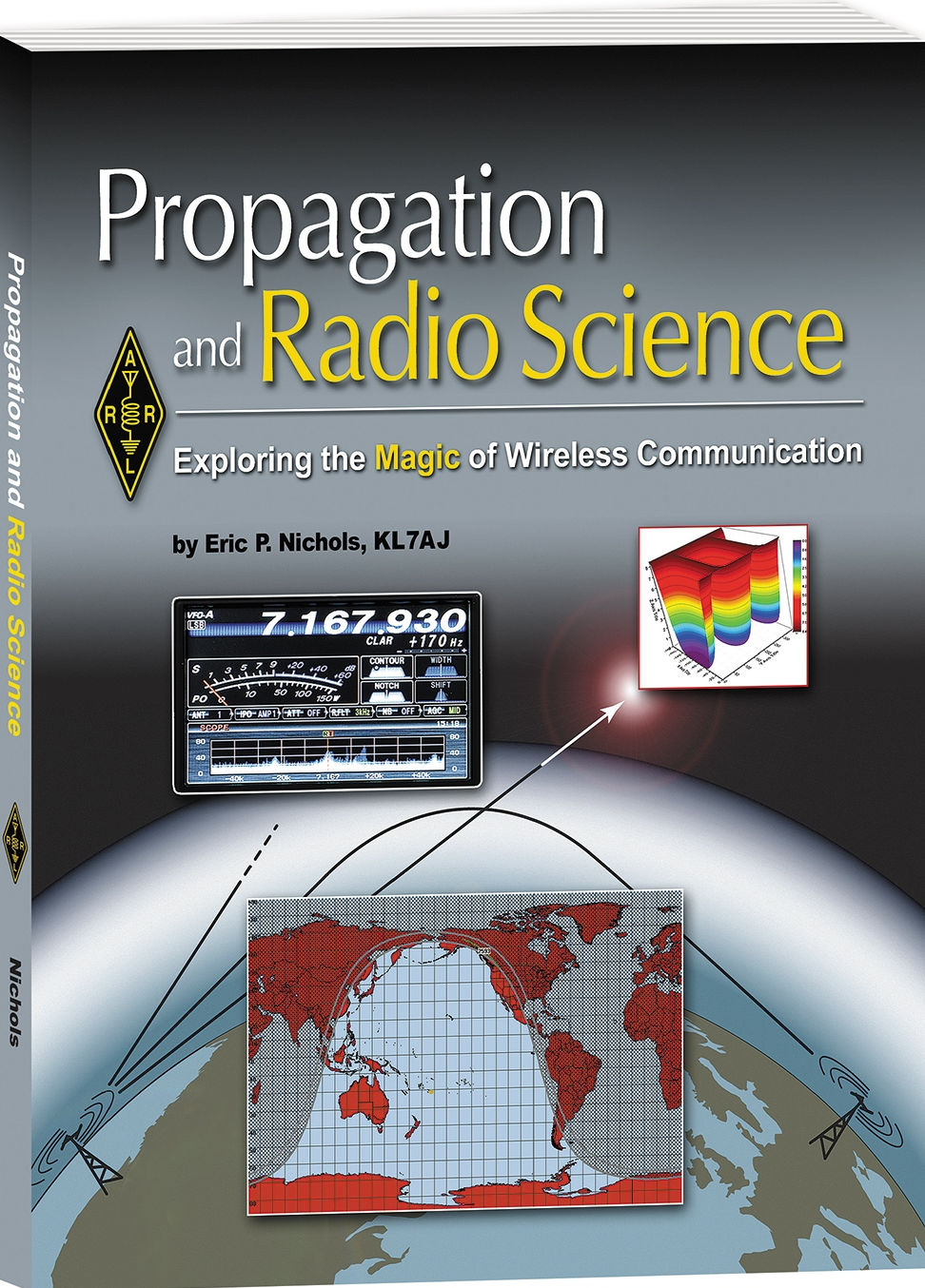 Order
Order 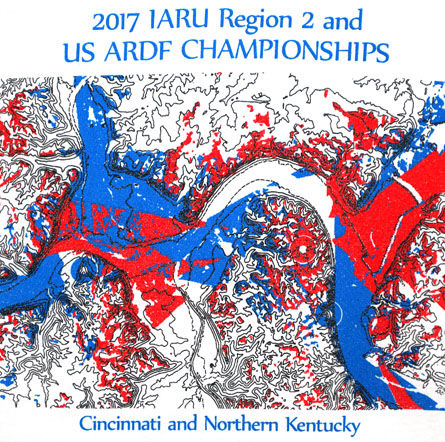 USA Championships were combined with the 9th ARDF Championships of International Amateur Radio Union Region 2 (
USA Championships were combined with the 9th ARDF Championships of International Amateur Radio Union Region 2 (.jpg)
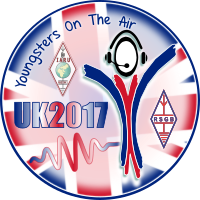 year's Youngsters on the Air (
year's Youngsters on the Air (.jpg)
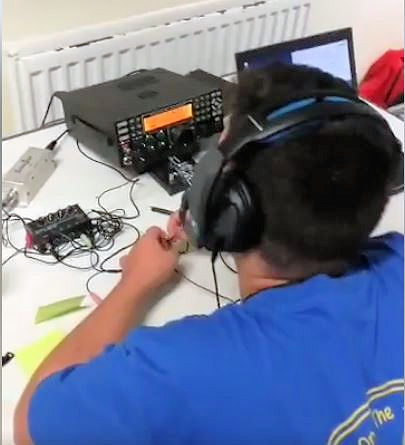
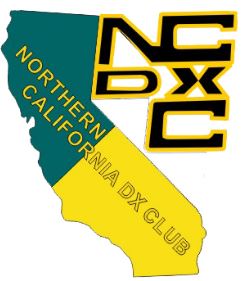 "Looking around the room at local club meetings makes it very clear that we are all aging," NCDXC's John Eisenberg, K6YP, said. "It is critical to the ongoing life of our hobby to recruit new blood into our ranks. We all know this, but it is difficult to organize and take effective action to start programs to introduce new people to the joys of HF operating. We can't generate new DXers until we have new HF operators."
"Looking around the room at local club meetings makes it very clear that we are all aging," NCDXC's John Eisenberg, K6YP, said. "It is critical to the ongoing life of our hobby to recruit new blood into our ranks. We all know this, but it is difficult to organize and take effective action to start programs to introduce new people to the joys of HF operating. We can't generate new DXers until we have new HF operators."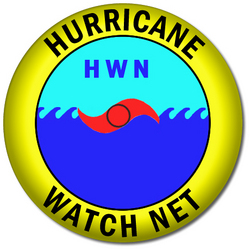 The Hurricane Watch Net (
The Hurricane Watch Net (.jpg) Lifetime Achievement Award: Ulrich Rohde, N1UL -- For significant achievements and a major body of work accomplished over a lifetime that has advanced the art and science of radio and wireless technology. Rohde, an ARRL Life Member, was recently announced as the winner of the 2017 W.G. Cady Award, sponsored by the IEEE Ultrasonics, Ferroelectrics, and Frequency Control (UFFC) Society, "for pioneering research, development, and commercialization of signal-generating and processing devices for commercial and scientific applications."
Lifetime Achievement Award: Ulrich Rohde, N1UL -- For significant achievements and a major body of work accomplished over a lifetime that has advanced the art and science of radio and wireless technology. Rohde, an ARRL Life Member, was recently announced as the winner of the 2017 W.G. Cady Award, sponsored by the IEEE Ultrasonics, Ferroelectrics, and Frequency Control (UFFC) Society, "for pioneering research, development, and commercialization of signal-generating and processing devices for commercial and scientific applications."-th.jpg) Sarnoff Citation: James Breakall, WA3FET -- For exceptional contributions of a technical or non-technical nature to the advancement of electronic communications. The Penn State electrical engineering professor, antenna designer, and ARRL member has credited Amateur Radio for his career path. Known in ham radio circles as "Doctor Jim," Breakall is credited with developing the OWA (optimized wideband antenna) as well as antennas for such research facilities as Arecibo Observatory and HAARP.
Sarnoff Citation: James Breakall, WA3FET -- For exceptional contributions of a technical or non-technical nature to the advancement of electronic communications. The Penn State electrical engineering professor, antenna designer, and ARRL member has credited Amateur Radio for his career path. Known in ham radio circles as "Doctor Jim," Breakall is credited with developing the OWA (optimized wideband antenna) as well as antennas for such research facilities as Arecibo Observatory and HAARP..jpg) Fred M. Link Award: Peter J. Madsen, K2PM -- For lifetime achievement in land mobile radio communication and for his significant contributions to resolve serious issues affecting repeaters in urban environments. Madsen, an ARRL member, has said his interest in electronics and ham radio began with "staring into the vent slot of our 12-inch Emerson, at the 6BG6 and 6W4 glowing inside the high-voltage cage."
Fred M. Link Award: Peter J. Madsen, K2PM -- For lifetime achievement in land mobile radio communication and for his significant contributions to resolve serious issues affecting repeaters in urban environments. Madsen, an ARRL member, has said his interest in electronics and ham radio began with "staring into the vent slot of our 12-inch Emerson, at the 6BG6 and 6W4 glowing inside the high-voltage cage."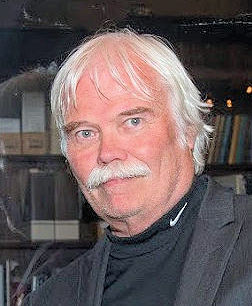 Barry Goldwater Amateur Radio Award: Michael Kalter, W8CI -- For unique contributions to the field of Amateur Radio. Kalter, the Dayton Amateur Radio Association Treasurer and Hamvention® spokesperson, was instrumental in Hamvention's relocation to Xenia, Ohio, this past spring after the 2016 closure of Hara Arena. An ARRL member, Kalter is also co-chair of the Hamvention Awards Committee. He served as a Peace Corps volunteer in Tunisia in 1974 and 1975.
Barry Goldwater Amateur Radio Award: Michael Kalter, W8CI -- For unique contributions to the field of Amateur Radio. Kalter, the Dayton Amateur Radio Association Treasurer and Hamvention® spokesperson, was instrumental in Hamvention's relocation to Xenia, Ohio, this past spring after the 2016 closure of Hara Arena. An ARRL member, Kalter is also co-chair of the Hamvention Awards Committee. He served as a Peace Corps volunteer in Tunisia in 1974 and 1975.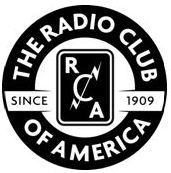 David P. Bart, KB9YPD
David P. Bart, KB9YPD.jpg) A problem with the plane's fuel system at the approximate halfway point caused Lloyd to turn back for repairs. That and some poor weather delayed his return to Texas by a few days.
A problem with the plane's fuel system at the approximate halfway point caused Lloyd to turn back for repairs. That and some poor weather delayed his return to Texas by a few days.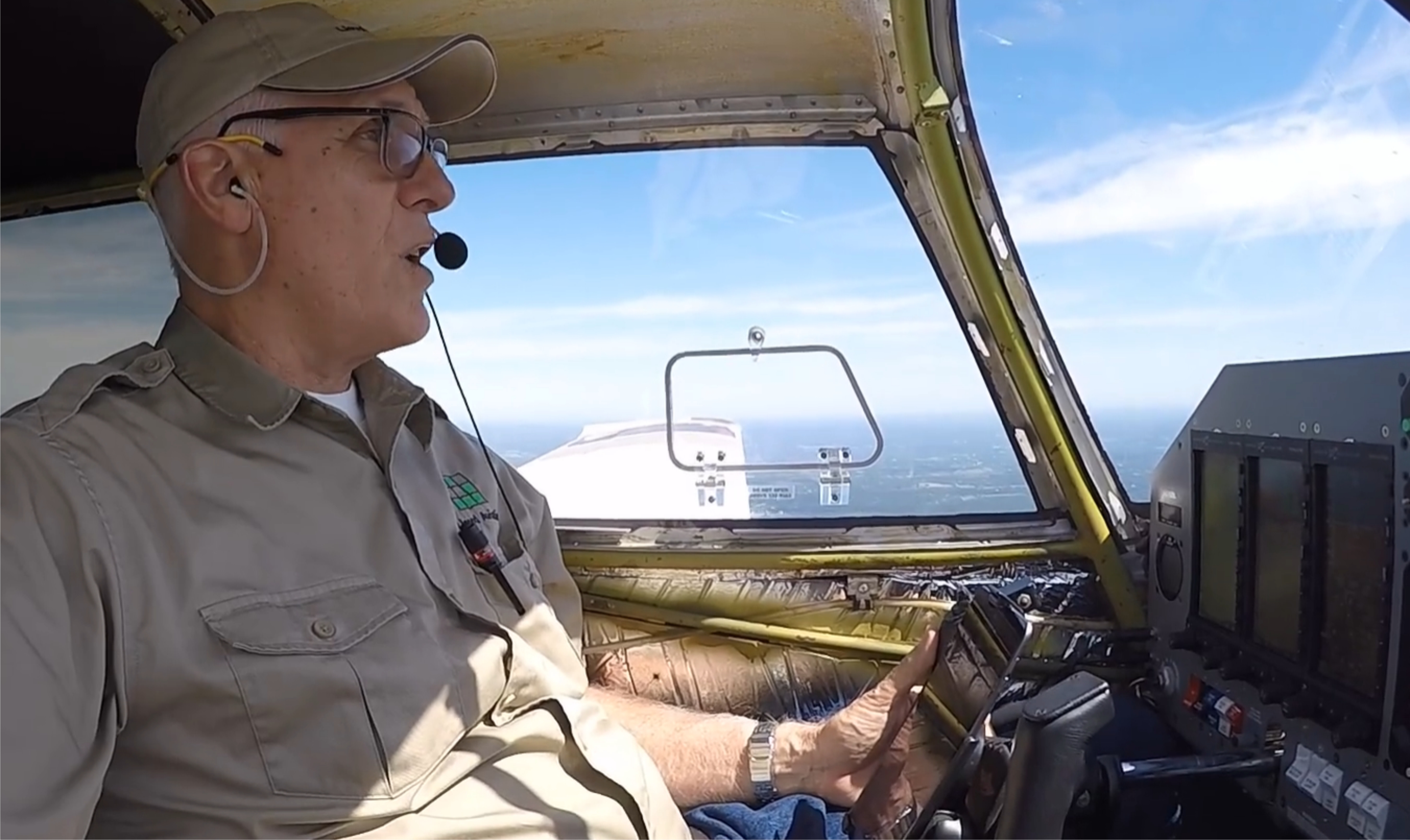 Lloyd landed in Oakland, California, on July 31, marking his return to the Continental US. On his final leg, he visited the Amelia Earhart Museum in Atchison, Kansas, before ending his epic flight at his home airfield, Kestrel Airpark in Texas, where the celebration awaited. Lloyd crossed the meridian that passes through Kestrel Airpark on his way to Atchison, Earhart's birthplace, at that point successfully circumnavigating the globe.
Lloyd landed in Oakland, California, on July 31, marking his return to the Continental US. On his final leg, he visited the Amelia Earhart Museum in Atchison, Kansas, before ending his epic flight at his home airfield, Kestrel Airpark in Texas, where the celebration awaited. Lloyd crossed the meridian that passes through Kestrel Airpark on his way to Atchison, Earhart's birthplace, at that point successfully circumnavigating the globe..jpg) RSVP for the SEQP: The Solar Eclipse QSO Party (
RSVP for the SEQP: The Solar Eclipse QSO Party (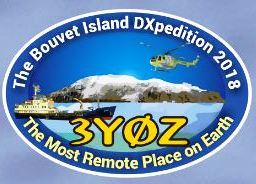 NCDXF Announces $100,000 Contribution to the 3Y0Z Bouvet Island DXpedition: The Northern California DX Foundation (
NCDXF Announces $100,000 Contribution to the 3Y0Z Bouvet Island DXpedition: The Northern California DX Foundation ( Senate Confirms Rosenworcel, Carr to Join FCC, Chairman Pai's Reconfirmation Pending: By voice vote, the US Senate on August 3 confirmed President Trump's nominees to fill the two empty seats on the FCC -- Democrat Jessica Rosenworcel, a former commissioner, and Brendan Carr, the FCC general counsel, a Republican. The five-member FCC now has three Republicans and two Democrats. "I congratulate Brendan and Jessica on their confirmations," said FCC Chairman Ajit Pai. "As I know from working with each of them for years, they have distinguished records of public service and will be valuable assets to the FCC in the years to come. Their experience at the FCC makes them particularly well-suited to hit the ground running. I'm pleased that the FCC will once again be at full strength and look forward to collaborating to close the digital divide, promote innovation, protect consumers, and improve the agency's operations." Pai, who was named by the president in January to succeed Democratic Chairman Tom Wheeler, must be reconfirmed by the Senate by the end of the year or step down. The other commissioners are Republican Michael O'Rielly and Democrat Mignon Clyburn.
Senate Confirms Rosenworcel, Carr to Join FCC, Chairman Pai's Reconfirmation Pending: By voice vote, the US Senate on August 3 confirmed President Trump's nominees to fill the two empty seats on the FCC -- Democrat Jessica Rosenworcel, a former commissioner, and Brendan Carr, the FCC general counsel, a Republican. The five-member FCC now has three Republicans and two Democrats. "I congratulate Brendan and Jessica on their confirmations," said FCC Chairman Ajit Pai. "As I know from working with each of them for years, they have distinguished records of public service and will be valuable assets to the FCC in the years to come. Their experience at the FCC makes them particularly well-suited to hit the ground running. I'm pleased that the FCC will once again be at full strength and look forward to collaborating to close the digital divide, promote innovation, protect consumers, and improve the agency's operations." Pai, who was named by the president in January to succeed Democratic Chairman Tom Wheeler, must be reconfirmed by the Senate by the end of the year or step down. The other commissioners are Republican Michael O'Rielly and Democrat Mignon Clyburn.







